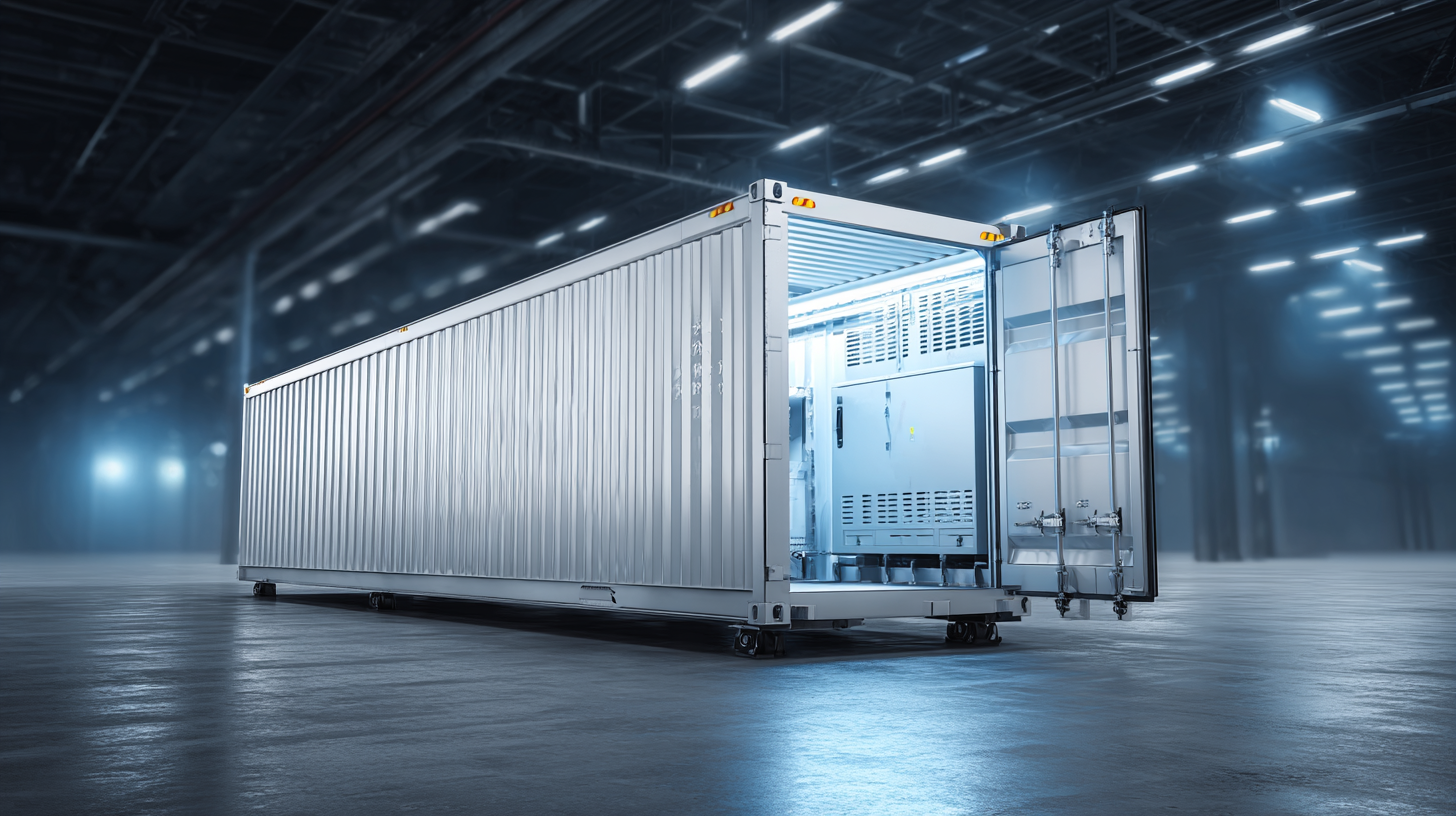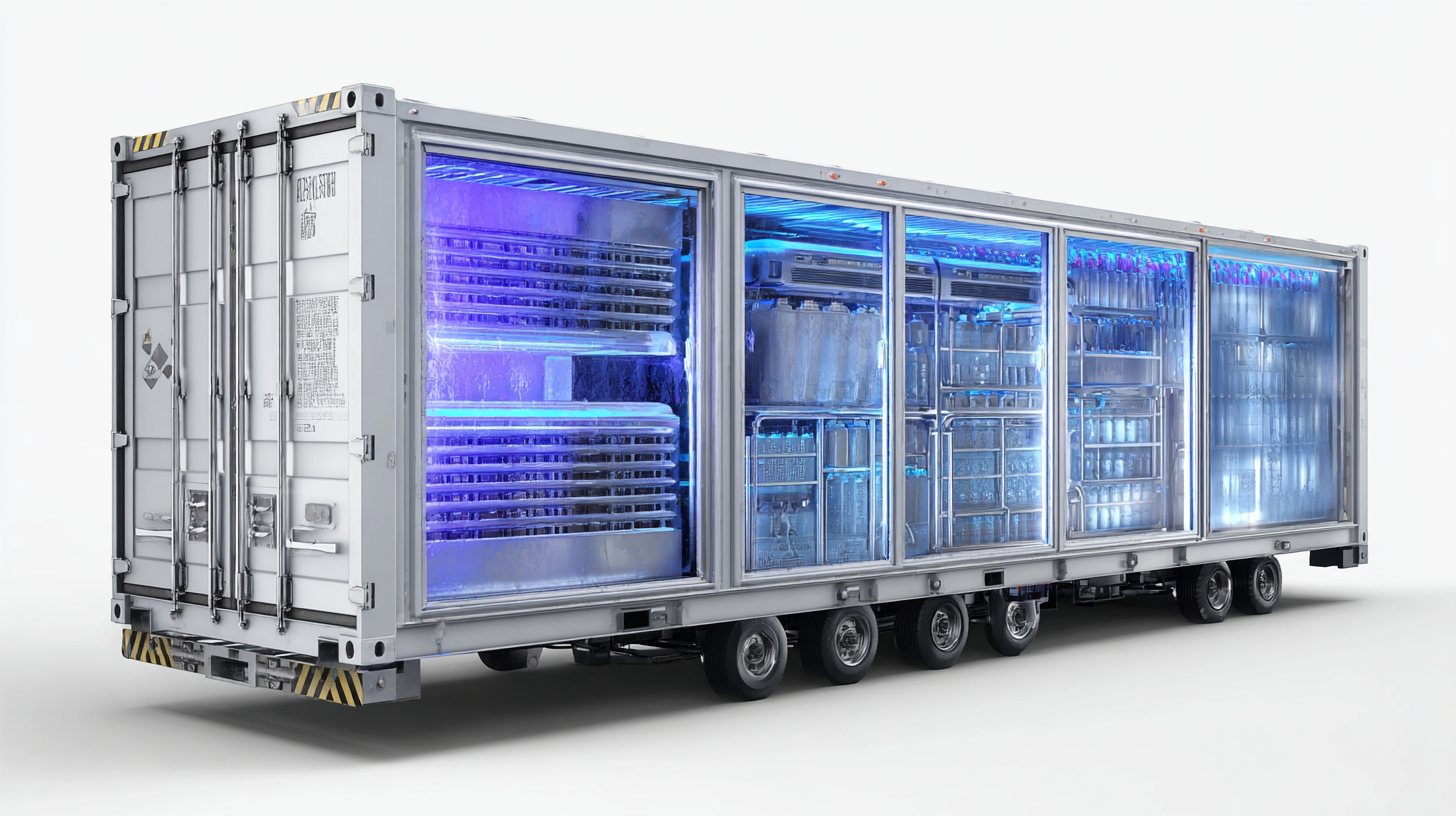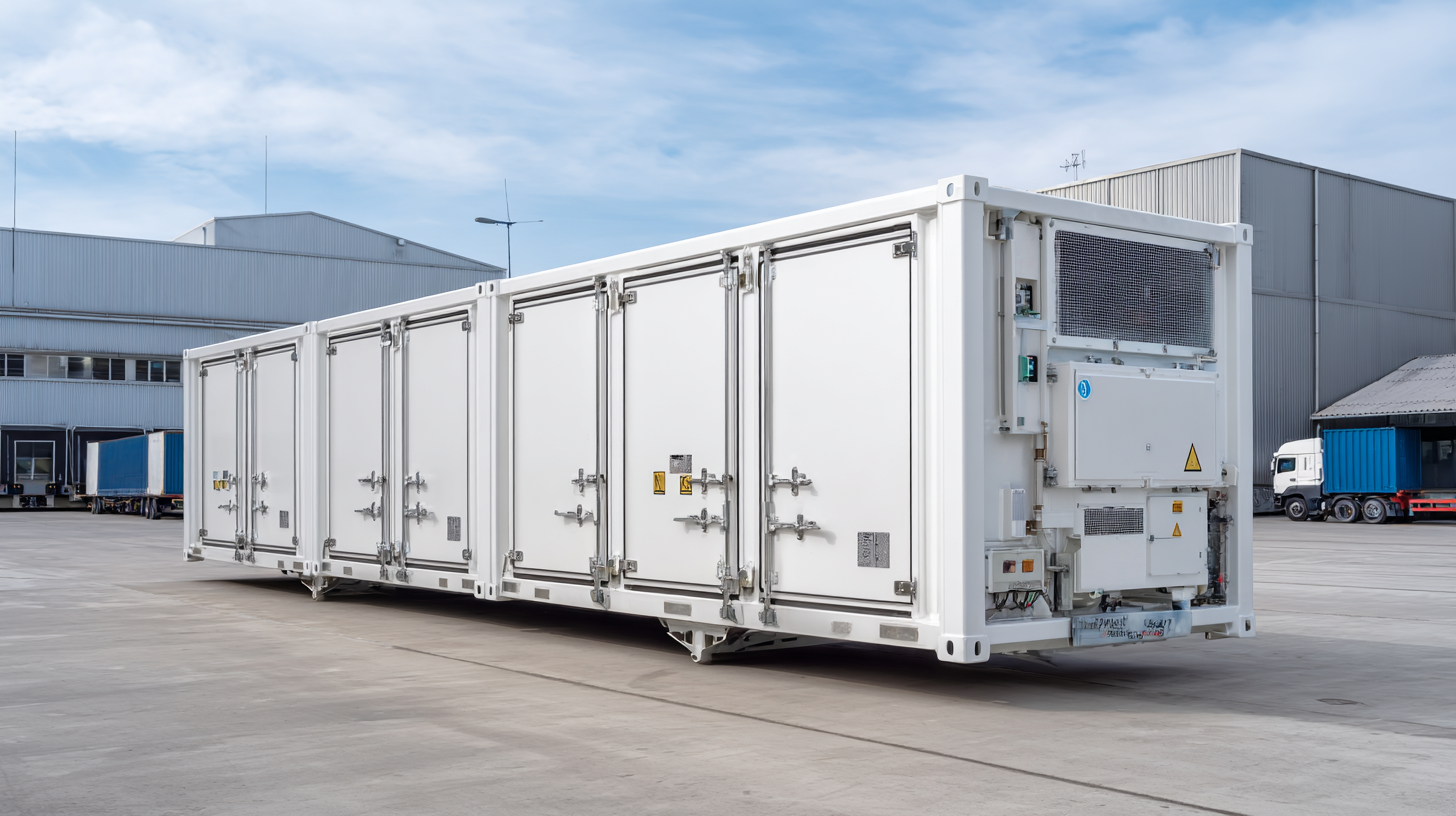News & Blogs
The Science Behind Refrigerated Containers and Their Role in Modern Logistics
In today's fast-paced global economy, the role of refrigerated containers in modern logistics cannot be overstated. These specialized units, also known as reefer containers, are essential for transporting perishable goods across vast distances while maintaining optimal temperatures. According to a report by the International Refrigerated Transportation Association, refrigerated container shipments are projected to grow at a CAGR of 12% from 2021 to 2026, highlighting their increasing importance in the food supply chain. With advancements in technology, modern refrigerated containers are equipped with sophisticated monitoring systems that ensure the integrity and quality of cargo, thereby minimizing spoilage and waste. As the demand for fresh produce, pharmaceuticals, and other temperature-sensitive products continues to rise, understanding the science behind refrigerated containers and their operational mechanisms is crucial for optimizing logistics strategies and ensuring product longevity in transit.

The Evolution of Refrigerated Containers: From Innovation to Indispensability
Refrigerated containers, often referred to as reefer containers, have transformed the logistics industry by ensuring that perishable goods can be transported safely across long distances. Originally designed in the mid-20th century, these containers combined the principles of refrigeration with robust shipping technology, enabling the cold chain to flourish. The initial designs were rudimentary, often relying on ice or simple refrigeration units, but advancements in insulation materials and technologies have made modern refrigerated containers far more efficient and reliable.
As global trade expanded, the need for high-quality perishables led to significant innovations in reefer technology. By the 1980s, refrigerated containers began to adopt advanced refrigeration systems that utilized digital controls and monitoring systems. This evolution not only improved temperature consistency but also reduced energy consumption, ensuring that goods like fresh produce, seafood, and pharmaceuticals could reach their destinations without spoilage. Today, refrigerated containers are indispensable in logistics, allowing businesses to meet consumer demand while adhering to strict safety and quality standards in the global supply chain.
The Science Behind Refrigerated Containers and Their Role in Modern Logistics
| Feature | Description | Impact on Logistics | Temperature Range (°C) |
|---|---|---|---|
| Insulation Technology | Advanced materials that minimize heat transfer. | Reduces energy costs and improves efficiency in transporting perishable goods. | -20 to +25 |
| Refrigeration Units | Mechanical systems that control the interior temperature. | Ensures safe transport of food and pharmaceuticals. | -30 to +30 |
| Monitoring Technology | Real-time temperature and humidity tracking systems. | Enhances traceability and ensures compliance with safety regulations. | -20 to +25 |
| Container Types | Various sizes and configurations (e.g., single door, double door). | Flexibility in transporting different types of cargo. | Varies by design |
| Energy Efficiency | Innovative designs that use less energy. | Reduces overall environmental impact. | -20 to +25 |
Understanding the Technology: How Refrigeration Systems Work in Logistics
Refrigerated containers, or reefer containers, are essential in modern logistics, particularly for perishable goods. These containers utilize advanced refrigeration systems that maintain optimal temperatures and preserve the freshness of products during transportation. A typical refrigeration unit operates using a compressor, condenser, and evaporator, facilitating heat exchange to keep the internal environment cool. The National Oceanic and Atmospheric Administration (NOAA) notes that maintaining proper temperature control can reduce spoilage rates of perishables by up to 30%, which is significant for the food industry.
Additionally, data from the International Refrigerated Transportation Association (IRTA) reveals that the refrigerated transport market is expected to grow by approximately 5.5% annually, driven by the increasing demand for fresh and frozen products globally. This growth emphasizes the critical role of refrigeration technology in ensuring the supply chain remains uninterrupted, effective, and efficient. Modern refrigerated containers are equipped with IoT sensors that monitor temperature and humidity in real-time, providing logistics managers with vital information to make informed decisions and ensure product integrity throughout the journey.
The Science Behind Refrigerated Containers in Modern Logistics
The Impact of Refrigerated Containers on Global Supply Chains
Refrigerated containers, often referred to as reefer containers, play a crucial role in modern global supply chains by ensuring the safe transportation of perishable goods across vast distances. These specialized containers are equipped with advanced cooling systems that maintain optimal temperature and humidity levels, allowing the shipment of products such as fruits, vegetables, dairy, and pharmaceuticals without compromising their quality. As global trade continues to expand, the demand for reliable temperature-controlled logistics has increased significantly, enabling businesses to reach new markets and meet consumer needs effectively.
The impact of refrigerated containers on global supply chains is profound. They facilitate international trade by allowing countries to export seasonal produce, thus stabilizing supply and ensuring year-round availability of food items. Moreover, the ability to transport temperature-sensitive products has led to increased food security and reduced waste, as goods can be delivered swiftly and safely to their destinations. This has also empowered retailers and distributors to diversify their product offerings, catering to a wider range of consumer preferences while maximizing their operational efficiency. As technology continues to evolve, the efficiency and effectiveness of refrigerated containers will undoubtedly further transform logistics practices worldwide.
Sustainability in Refrigerated Logistics: Balancing Efficiency and Environmental Concerns
 Sustainability has become a critical consideration in every facet of logistics, particularly in the realm of refrigerated transportation. As the demand for fresh and perishable goods continues to rise, it is essential to balance operational efficiency with environmental impact. Advancements in technology have paved the way for more energy-efficient cooling systems within refrigerated containers, reducing greenhouse gas emissions and minimizing energy consumption.
Sustainability has become a critical consideration in every facet of logistics, particularly in the realm of refrigerated transportation. As the demand for fresh and perishable goods continues to rise, it is essential to balance operational efficiency with environmental impact. Advancements in technology have paved the way for more energy-efficient cooling systems within refrigerated containers, reducing greenhouse gas emissions and minimizing energy consumption.
Moreover, the implementation of eco-friendly refrigerants is gaining traction as part of an overall strategy to enhance sustainability. Traditional refrigerants often contribute to ozone depletion and global warming, prompting the industry to shift toward natural alternatives that have a significantly lower environmental footprint. By adopting these technologies, logistics companies can not only comply with stricter regulatory standards but also appeal to eco-conscious consumers who prioritize sustainability in their purchasing decisions.
Hence, the ongoing evolution in refrigerated logistics not only enhances supply chain efficiency but also aligns with broader environmental goals.
Future Trends: The Role of IoT and Smart Technology in Refrigerated Transportation
The integration of IoT and smart technology into refrigerated transportation is revolutionizing modern logistics, particularly in the context of agricultural products. As Azerbaijan's agriculture grapples with challenges such as climate change and fluctuating production values, the need for efficient transportation solutions becomes increasingly critical. Smart sensors and IoT devices enable real-time monitoring of temperature and humidity within refrigerated containers, ensuring that perishable goods remain in optimal condition throughout their journey. This technology not only enhances food safety but also reduces waste, providing a competitive edge in a struggling agricultural market.

Moreover, the role of predictive analytics powered by IoT can significantly optimize supply chain management. By analyzing data on environmental conditions, transportation routes, and consumer demand, logistics companies can make informed decisions that enhance efficiency and reduce costs. This proactive approach allows for better inventory management and streamlined operations, which is essential for responding to the uncertainties facing agriculture in Azerbaijan and beyond. As smart technology continues to evolve, it promises to further transform refrigerated transportation into a vital component of resilient and sustainable logistics frameworks, addressing both current challenges and future demands.
 عربي
عربي عربي
عربي